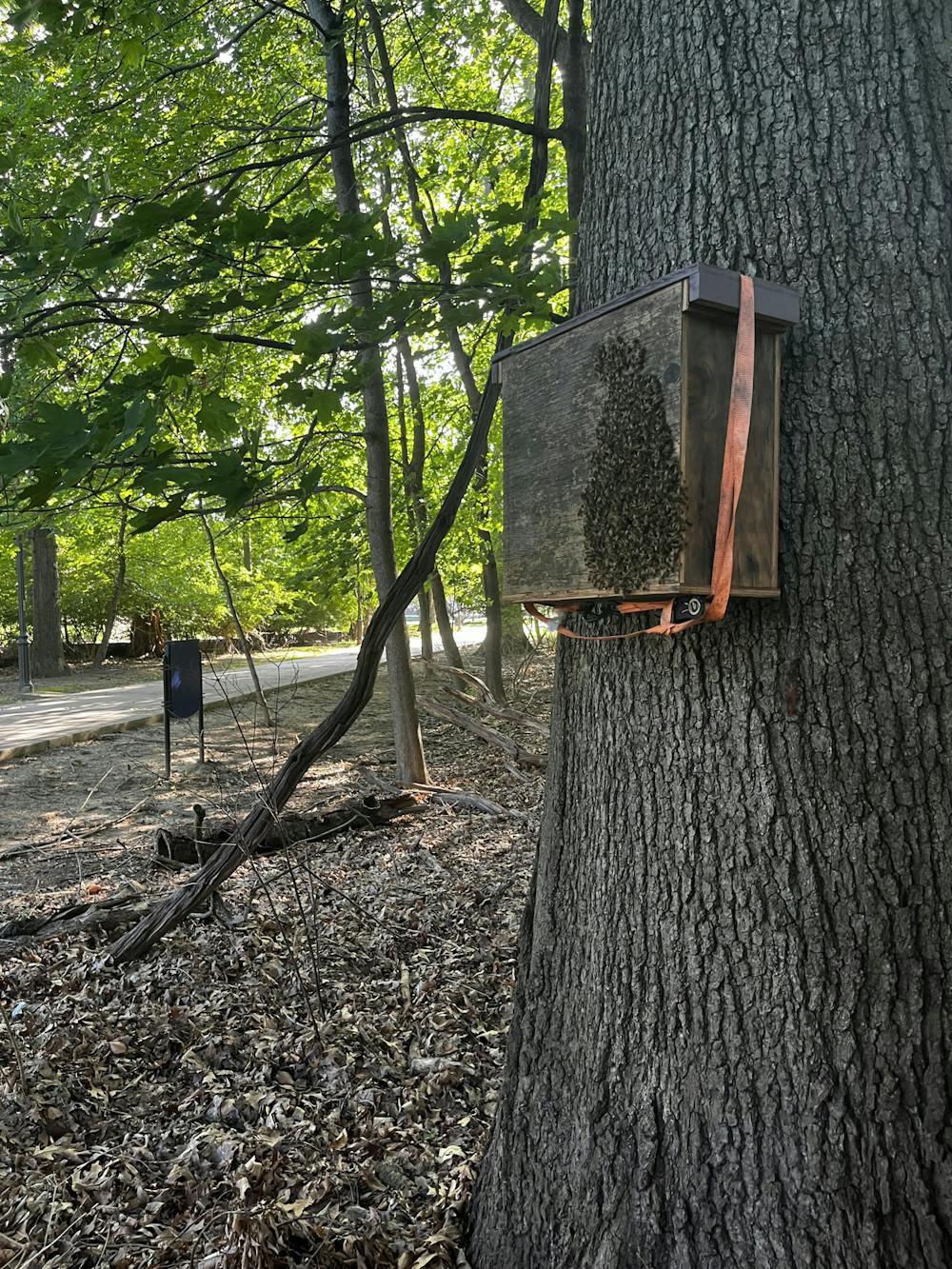By Myara Gomez
Staff Writer
The College had to take care of a rather serious honey bee infestation outside of the Forcina building. When honey bee swarms are found close to buildings they become a safety issue, because the bees are more likely to be provoked due to activity in the area.
According to Mike Weber, grounds and automotive manager at the College, the honey bee swarm was present for two days before it was removed. The bees were found in a shrub outside the north side of Forcina.
The College called Mark Million, owner of A Mark of Beekeeping, onto the scene to safely relocate the bees. Million did this at no cost to the College.
The overall process of relocating bees is quite interesting because it can be seen as more of a waiting game. Million placed a honey bee box close to the swarm, the bees then began to relocate to this box on their own. Once all of the bees moved into this box and got cozy, Million removed the box from the shrub and took it to his farm in Florence, New Jersey.
“In the last couple of years, the College has seen 5 or 6 swarms on campus. Prior to 2021, I cannot recall any swarms,” said Weber.
There is another swarm located in the ecological preserve that will also be relocated. Unfortunately, there is nothing the College can do to control the swarms on campus. All they can do is ask a certified beekeeper to relocate them.
According to Environment New Jersey, Governor Phil Murphy signed off on legislation to protect bees from pesticides that would harm or kill them. Neonicotinoids, also known as “neonics,” are used almost everywhere one may find a plot of grass. The way they work, according to nrdc.org, is by indefinitely binding the cells of their nerves and breaking them down until they die
Honey bees are extremely helpful and do a lot for our ecosystem, as stated in planetbee.org. Bees are pollinators and their job is to pollinate flowers and crops. The bees are what keeps our plants healthy and allows them to grow what is needed. The legislation that Governor Murphy signed is helping to save the honey bee population in New Jersey. Although all states are not practicing this, New Jersey is paving the way for a safer environment and might be the first step to getting other states to do their part.
“The beekeeper has speculated that we are having swarms on campus due to a local farm that probably lost its bees,” Weber said. “[We] cannot confirm this though. Also, the only time we will remove a swarm is if it is close to a building, sidewalk or parking lot.”
Relocating all of the bee swarms that are found on campus is not necessary because not all of them are a disturbance. They are only removed if they are found in areas where students frequent because this can be a safety issue.
Overall, honey bees are essential to our ecosystem and they should never be harmed, since they are not violent unless provoked. If students find a swarm, they can do their part by advising facilities at facility@tcnj.edu and making sure they don’t disturb the bees.







